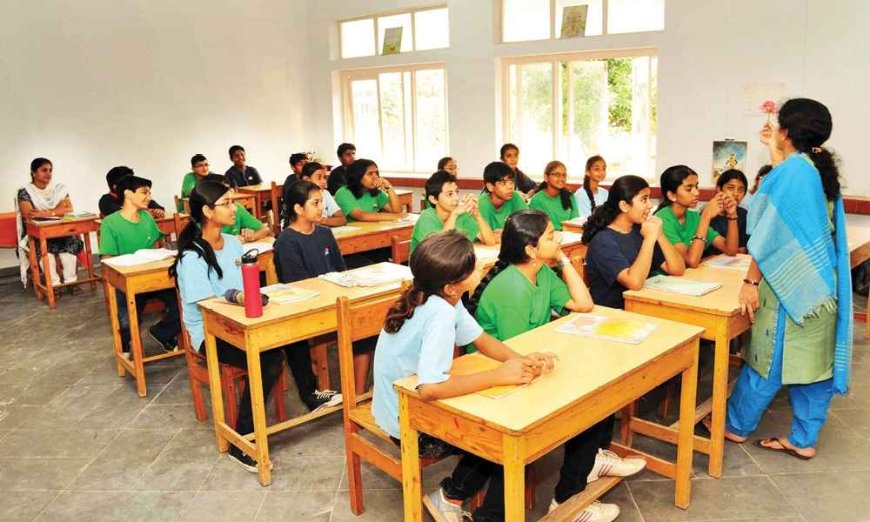The Role of Governments in Improving Educational Outcomes
At the very foundation of human progress and the flourishing of society stands education, an invaluable cornerstone that illuminates

At the very foundation of human progress and the flourishing of society stands education, an invaluable cornerstone that illuminates the path towards enlightenment and growth. A well-functioning education system equips individuals with the knowledge, skills, and values needed to lead fulfilling lives and contribute meaningfully to their communities. While the responsibility of education often falls on schools and educators, the role of governments in shaping and improving educational outcomes cannot be overstated. In this article, we will explore the crucial role that governments play in the education system and the steps they can take to enhance educational outcomes for all.
Setting the Vision: A Clear Path to Success
One of the primary roles of governments in education is to set a clear vision and long-term goals for the education system. By establishing a comprehensive and achievable vision, governments provide direction and guidance to educators, parents, and students. This vision serves as a roadmap, ensuring that the efforts of all stakeholders are aligned towards the common goal of providing quality education to every child.
In addition to a vision, governments must also define policies and standards that outline the learning objectives and expectations at each educational level. These policies act as a foundation for curriculum development, teacher training, and assessment methods, creating a cohesive and effective educational framework.
Ensuring Equitable Access: Bridging the Divide
One of the critical challenges in education is ensuring equitable access to quality education for all children, regardless of their socio-economic background or geographic location. Governments play a vital role in identifying and addressing disparities in access, working towards bridging the educational divide.
To achieve this, governments must invest in building and maintaining infrastructure in underserved areas, ensuring that schools have the necessary resources and facilities for effective teaching and learning. Additionally, targeted scholarship programs and financial aid can help students from disadvantaged backgrounds pursue higher education and unlock their full potential.
Allocating Adequate Funding: Investing in the Future
A well-funded education system is essential for providing a nurturing and conducive learning environment. Governments must prioritize education funding to cater to the evolving needs of schools, teachers, and students. Adequate funding can lead to smaller class sizes, improved teacher-student ratios, and access to modern teaching aids and technologies.
Moreover, investment in teacher training and professional development is crucial to enhance teaching methodologies and keep educators updated with the latest trends in education. Empowered and motivated teachers can create a positive impact on student outcomes, contributing to an overall improvement in the education system.
Embracing Innovation: Integrating Technology in Education
In the digital age, technology has become an integral part of our daily lives. Governments need to recognize the potential of technology in education and invest in its integration within the education system. From interactive learning platforms to virtual classrooms, technology can enhance engagement and provide personalized learning experiences.
By encouraging the use of educational technology, governments can foster a culture of innovation and equip students with essential digital skills needed for the future workforce. Additionally, governments must ensure that all schools have access to reliable internet connectivity and necessary technology infrastructure to prevent the digital divide.
Monitoring and Evaluation: Holding Systems Accountable
Governments have a responsibility to monitor and evaluate the performance of the education system regularly. By conducting comprehensive assessments, they can identify areas of improvement and implement evidence-based strategies to enhance educational outcomes.
Standardized testing and evaluation can provide valuable insights into student performance, allowing governments to address gaps in learning and implement targeted interventions. Additionally, evaluating the effectiveness of policies and initiatives can help governments make informed decisions and reallocate resources to areas that require the most support.
The role of governments in improving educational outcomes is fundamental to the growth and prosperity of a nation. By setting a clear vision, ensuring equitable access, allocating adequate funding, embracing innovation, and monitoring progress, governments can create an education system that empowers individuals and prepares them for a bright future.
Education is not solely the responsibility of schools and educators; it is a collective effort that involves the collaboration of parents, communities, and governments. By working together and prioritizing education as a cornerstone of progress, we can create a society where every individual has the opportunity to reach their full potential and contribute to a better world. Governments hold the key to unlocking the potential of education, and with strategic and thoughtful actions, they can shape a brighter future for generations to come.
